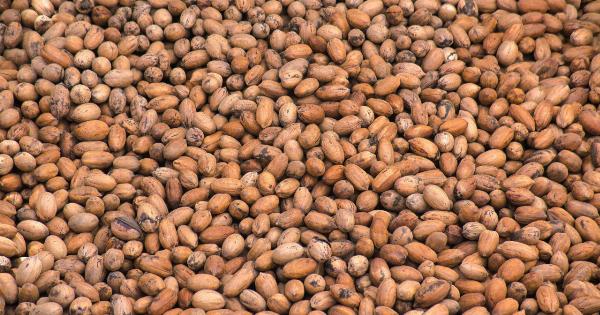If you are trying to conceive, your diet can play a crucial role in improving your fertility. A healthy and balanced diet can not only boost your fertility but also improve your overall health.
Here are some key nutrients that you should focus on when aiming for a healthy diet that supports fertility:.
Folate
Folate is a B-vitamin that plays a crucial role in DNA synthesis and cell division.
It is especially important for women who are trying to conceive because it can significantly reduce the risk of neural tube defects, such as spina bifida, in the developing fetus.
You can get folate from many foods, including leafy green vegetables, citrus fruits, beans, and fortified bread and cereals. It is also essential to start taking folate supplements before you conceive to ensure that you are getting enough.
Iron
Iron is vital for the production of hemoglobin in red blood cells, which helps the cells carry oxygen throughout the body.
It is especially crucial for pregnant women because their blood volume increases, and they need to produce enough hemoglobin to support the growing fetus.
You can get iron from many foods, including red meat, poultry, fish, beans, nuts, and seeds.
It is essential to ensure that you are getting enough iron, as iron deficiency can lead to anemia, which can cause fatigue, weakness, and other health problems.
Calcium
Calcium is a mineral that is necessary for building and maintaining strong bones and teeth. It is also important for muscle and nerve function, and blood clotting.
The body constantly loses calcium through urine, sweat, and other bodily fluids, so it is essential to get enough calcium from food.
You can get calcium from dairy products, such as milk, cheese, and yogurt, as well as leafy green vegetables, tofu, and fortified foods such as orange juice and cereals.
Vitamin D
Vitamin D helps the body absorb calcium and plays a crucial role in bone health. It is also essential for the immune system and can help reduce inflammation.
While the body can produce vitamin D when exposed to sunlight, it can be challenging to get enough vitamin D from food alone.
You can get vitamin D from a few foods, such as oily fish like salmon and sardines, egg yolks, and fortified products like milk, cereal, and orange juice.
It is also a good idea to talk to your healthcare provider about whether you need a vitamin D supplement.
Omega-3 fatty acids
Omega-3 fatty acids, especially EPA and DHA, are essential for brain and eye development in fetuses and infants. They are also important for reducing inflammation and improving heart health.
The body cannot produce omega-3 fatty acids, so it is essential to get them from food.
You can get omega-3 fatty acids from fatty fish, such as salmon, mackerel, and sardines, as well as nuts and seeds, especially flaxseeds and chia seeds.
It is also a good idea to take a fish oil supplement if you are not getting enough omega-3s from your diet.
Protein
Protein is essential for building and repairing tissues and muscles, including the uterus and ovaries. It is also important for producing hormones and enzymes that regulate the menstrual cycle.
You can get protein from many foods, including meat, poultry, fish, beans, lentils, nuts, and seeds. It is important to choose lean protein sources and to avoid eating too much red meat, as it has been linked to infertility and other health problems.
Complex carbohydrates
Complex carbohydrates, such as whole grains, fruits, vegetables, and beans, are a great source of energy and nutrients. They are also rich in fiber, which can help regulate blood sugar and insulin levels, which can affect fertility.
Avoid simple carbohydrates, such as refined sugar and white flour products, which can cause blood sugar spikes and interfere with hormone production.
Zinc
Zinc is a mineral that plays a crucial role in fertility. It is essential for egg production, fertilization, and embryonic development. Zinc also helps regulate hormone levels and supports the immune system.
You can get zinc from many foods, including meat, poultry, fish, beans, nuts, and seeds.
Vitamin C
Vitamin C is an antioxidant that can help protect cells from damage and improve overall health.
It is also essential for producing collagen, which helps build and repair tissues, including the cervical mucus that helps sperm travel to fertilize the egg.
You can get vitamin C from many foods, including citrus fruits, berries, tomatoes, and leafy green vegetables.
Conclusion
By focusing on these key nutrients, you can improve your overall health and increase your chances of conceiving. A healthy and balanced diet can also reduce the risk of complications during pregnancy and give your baby the best possible start in life.































